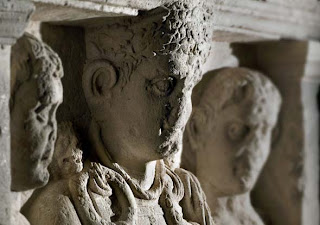 |
| Burton in full swing |
Lancashire golfer Dick Burton made history when he won The Open Championship of 1939.
In the build-up the tournament The St Andrews Citizen newspaper stated: ‘In no event is it more difficult to act the prophet than in an Open Championship, and the task of spotting the winner is no more easy this year than on any former occasion’.
It tipped Henry Cotton, making a bid to win the title for a third time, stating ‘it is difficult to imagine anything nearer perfection in golf, and by popular choice he is Britain’s No.1 hope.’











